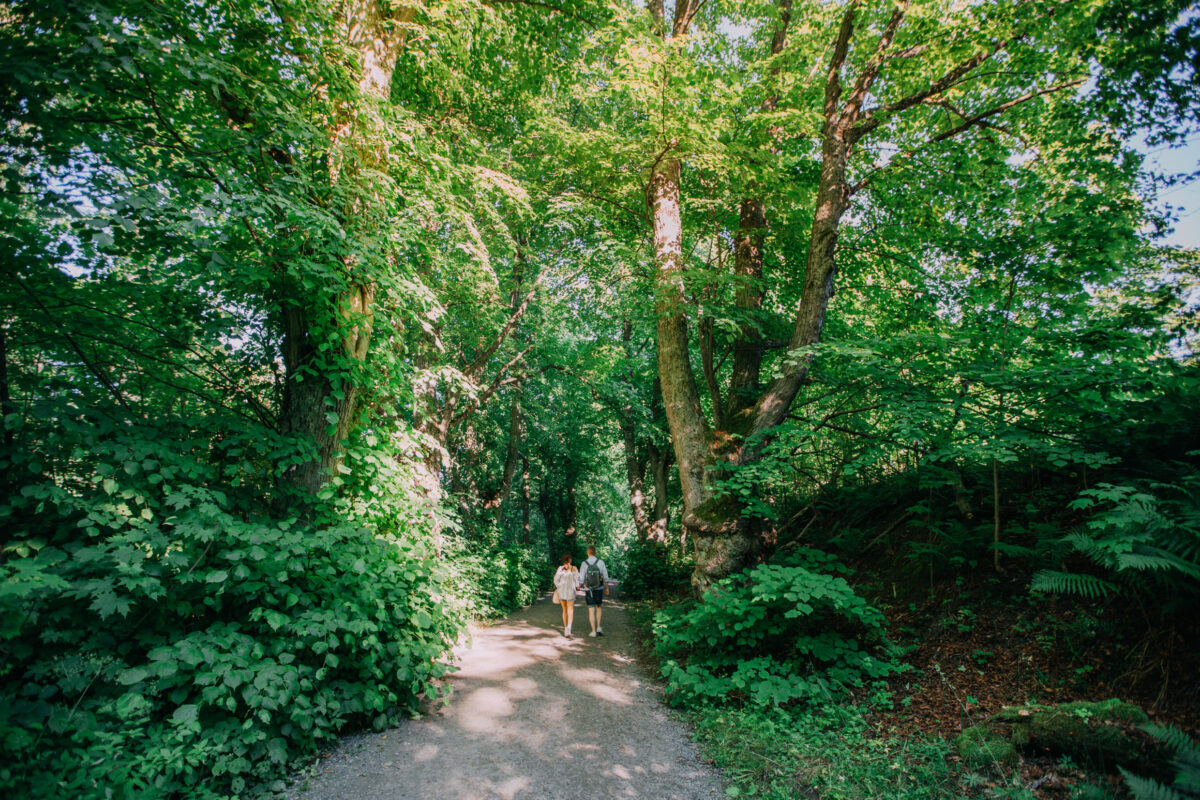Competition challenge: carbon neutral tourism – smart solutions concerning the carbon neutrality and energy efficiency of the tourism sector.
The aim of the Carbon Neutral Tourism project is to develop smart solutions related to carbon neutrality and energy efficiency. This includes pilots with new data sources such as data collection, experiments with artificial intelligence and platform service acquisition as well as interface development from data sources to a shared platform.
The innovation competition seeks new ideas and concepts for developing smart solutions for companies in the tourism industry and City operators. The competition welcomes entries on three themes: Most creative dashboard, Most innovative data analysis and Best impact potential.
The competition lasts until midnight on 27 September 2020 (Open Call, open for three weeks). The competition form can be found here.
The preselected competition works will be presented to the jury at the Carbon Neutral Tourism Pitch online event from 12 noon to 2 pm on 8 October 2020. The jury will then award prizes to the best proposals. Further details on the online event will be published later on.
The competition prizes will be awarded based on the jury’s assessment and they are as follows:
- First prize €2,000
- Second prize €1,500
- Third prize €1,000
Most creative dashboard
Idea or concept
- Digital services and data collection channels facilitate new ways of sharing sustainable and responsible data on tourism instruments and alternatives for sustainable tourism by expanding awareness.
- Purpose: provide a visual representation of the most essential and up-to-date information in one view, which the user can use to gain a quick overview of the situation and take the necessary actions based on this information.
- For whom is the solution offered: companies in the tourism industry and city organisations.
- Challenge: the challenge is to present tourism instrument data in a form that is inspirational and readily available to encourage responsible tourism in a creative way and attract participants.
The following are considered advantages:
- Tourism is taken into account in the work; accommodation, restaurant business, mobility and activities, for example.
- The idea or concept supports the guidelines of the action plan.
- The idea or concept is demonstrated with the help of a data source.
- By and large, calculations in accordance with the GHG protocol standard have been taken into account.
Participate here: tell us about your idea or concept
Most innovative data analysis
Idea or concept
- People feel that “data analysis uses a great deal of company resources and utilising it means taking resources away from other company activities”. However, data analysis would enable companies to use data-based automatic analysis to focus on their business.
- How can we get the most out of data that has already been collected? Which new data could we collect to support low emissions tourism services? The increase in the amount of data is directly proportional to the amount of information, data and knowledge available for the efficiency of analysis tools. All this data on tourism and the analytics built based on it can be utilised by companies.
- Challenge: the challenge is to make data analytics available to every tourism and city operator.
The following are considered advantages:
- Tourism is taken into account in the work; accommodation, restaurant business, mobility and activities, for example.
- The data analysis gets to the core of data.
- The idea or concept is demonstrated with the help of a data source.
- By and large, calculations in accordance with the GHG protocol standard have been taken into account.
Participate here: tell us about your idea or concept
Best impact potential
Idea or concept
- Purpose: How can the impact of directive carbon-neutrality operations be assessed? Demonstrating impact is not tied to data of certain types or the application of a certain research method. Instead, each competition entry can choose the best way to model and measure impact and efficiency.
- A service for whom: companies in the tourism industry, city organisations and society at large.
- Challenge: The challenge is to present a five-stage scale, the first stage of which can be used to illustrate why the action is necessary, what it is trying to achieve and why the achieved state is better than the current situation. On the top tier, it must be made possible to scale the impact of the action.
The following are considered advantages:
- Tourism is taken into account in the work; accommodation, restaurant business, mobility and activities, for example.
- The idea or concept is demonstrated with the help of an example.
- By and large, calculations in accordance with the GHG protocol standard have been taken into account.
Participate here: tell us about your idea or concept
Rights:
The solutions do not need to provide enabling technology or other assets. As such, the conductor of the competition entry shall retain all intellectual property rights, etc. related to the entry. The challenge organiser reserves the right to change the rules of the challenge by announcing the changes on the challenge website.
The competition prizes will be awarded based on the jury’s assessment and they are as follows. The competition entry for the winners of the innovation competition will be purchased as a consultation entry.
- First prize €2,000
- Second prize €1,500
- Third prize €1,000
The winners will have the chance to discuss further development of their work with experts until 29 October 2020, at which time the winners also have the opportunity to present their solution to the project group.
Evaluation criteria:
The competition jury will assess the competition entries according to the following criteria on a scale of 1–5 and weight the scores on a scale of 1–5. Each section is evaluated separately:
- the proposed solution’s applicability to the challenge
- the innovativeness/novelty value of the proposed solution
- good usability and customer-oriented implementation
- good business potential and scalability.
The judges have the right to emphasise the evaluation criteria as they see fit, while maintaining intercomparability. The expert jury reserves the right not to choose any service providers.
Appendix: Greenhouse Gas Protocol (GHG protocol) and concepts https://ghgprotocol.org/
| Value chain | The value chain of an organisation encompasses everything from raw material sources to the end user and recycling. |
| CO2 carbon dioxide | The most significant greenhouse gas emissions produced by humans |
| CO2e | Carbon dioxide equivalent; amount equivalent to carbon dioxide |
| CH4 | Methane |
| Downstream emissions | Emissions generated after services and products are produced (such as transporting goods to resellers or
end customers, emissions generated during use, decommissioning). |
| GHG | Greenhouse gas |
| GHG protocol | International standardisation and guidance for calculating the carbon footprint |
| HFCs, fluorohydrocarbons | (HFCs) |
| Carbon-neutrality | The net greenhouse gas emissions of an organisation are zero
(may include emissions compensation). |
| N2O | Nitrous oxide or dinitrogen oxide |
| PFCs | Perfluorocarbons (PFCs) |
| Primary emissions data | Data collected directly from the operations of the organisation’s value chain. Collection methods include measuring, compiling from purchase invoices or collecting delivery information. |
| Scope 1 | GHG protocol scope 1: companies’ own emissions sources |
| Scope 2 | GHG protocol scope 2: indirect emissions from purchased or acquired electricity, steam, heat and cooling |
| Scope 3 | GHG protocol scope 3: indirect emissions created by the company’s value chain |
| Secondary data | Data collected from external sources on operations that do not have primary data. Secondary data includes data from public databases, statistics, literature and interest organisations. |
| SF6 | Sulfur hexafluoride |
| Upstream emissions | Emissions created by the operations facilitating production in the organisation, i.e. operation preceding the actual company process. These emissions are created by raw material production, incoming deliveries and business travel. |
6Aika, the Six City Strategy: The Carbon Neutral Tourism project aims to implement a new operating model utilising data as well as digital tools to promote carbon neutrality and improved energy efficiency within the tourism industry in cooperation with the cities of Helsinki, Turku and Tampere and various tourism operators. The tourism industry and public operators need to find smart solutions for data collection and utilisation.
The project will be developing applicable indicators, developing and combining relevant data sources, combining these into a shared information resource and transforming the data into usable and readily available information with the help of smart solutions. This information is then used to make necessary changes to reduce emissions generated by the tourism industry.

Further information

Eero Jalo
#urbansense
Mobile: +358 40 501 3223
eero.jalo(at)forumvirium.fi
